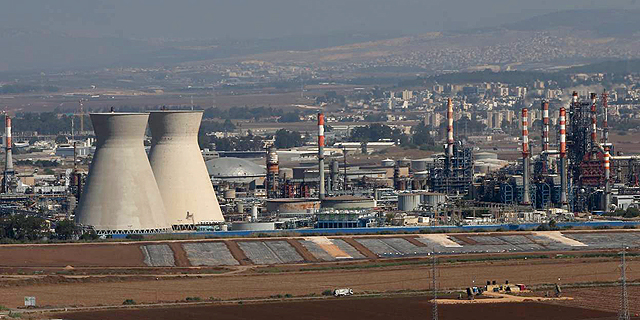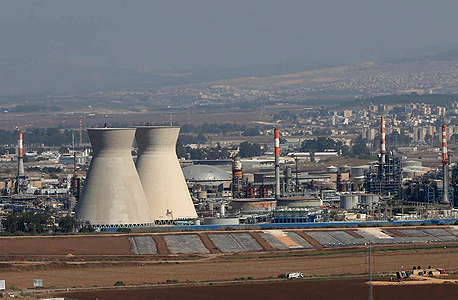
Ofer Family Facilities Cost Israel Over $300 Million in Public Health Damages in 2018
The Ofer family owns or holds stakes in various industrial companies, including Israel Corp., private power company OPC, and oil refining company Bazan
Lior Gutman | 13:25, 10.12.19
The damage to public health caused by factories and power plants owned by companies controlled by one of Israel’s most prominent business families, the Ofer family, has cost the state NIS 1.1 billion (approximately $317 million) in 2018 alone, according to a new report by Israeli advocacy group the Israel Union for Environmental Defense (also known as Adam Teva V'Din).
The estimate in the report, which was written by Arye Wanger, who heads the group’s air quality and energy department, is based on the amount of pollutants emitted by the factories in 2018, taken from a report published by Israel’s Ministry of Environmental Protection. The Ofer family, through its companies Israel Corp. Ltd. and Kenon Holdings Ltd., owns or holds stakes in various industrial companies, including private power company OPC Energy and oil refining company Bazan Group. Bazan’s subsidiaries include Israel Chemicals Ltd. (ICL) and petrochemical companies Carmel Olefins Ltd. and Gadiv Petrochemical Industries Ltd. In total, the family's holdings are responsible for 36% of industrial sulfur dioxide emissions in the country and 22% of particulate matter (PM10) emissions, according to the report. Wagner multiplied the emissions reported by the ministry for the Ofer family's 600 facilities in Israel, with the estimated costs of health damages they cause. Sulfur dioxide damages are estimated at NIS 57,000 (approximately $16,000) per tonne; nitrogen oxide at NIS 40,000 (approximately $11,000) per tonne; PM10 at NIS 98,000 (approximately $28,000) per tonne; volatile organic compounds, excluding methane, at NIS 21,000 (approximately $6,000) per tonne; and carbon dioxide (CO2) at NIS 131 (approximately $37) per tonne.Related stories
Israel Corp. and Bazan declined to comment.
